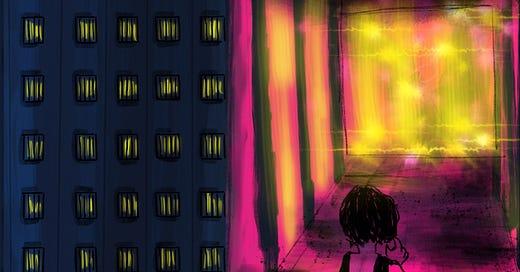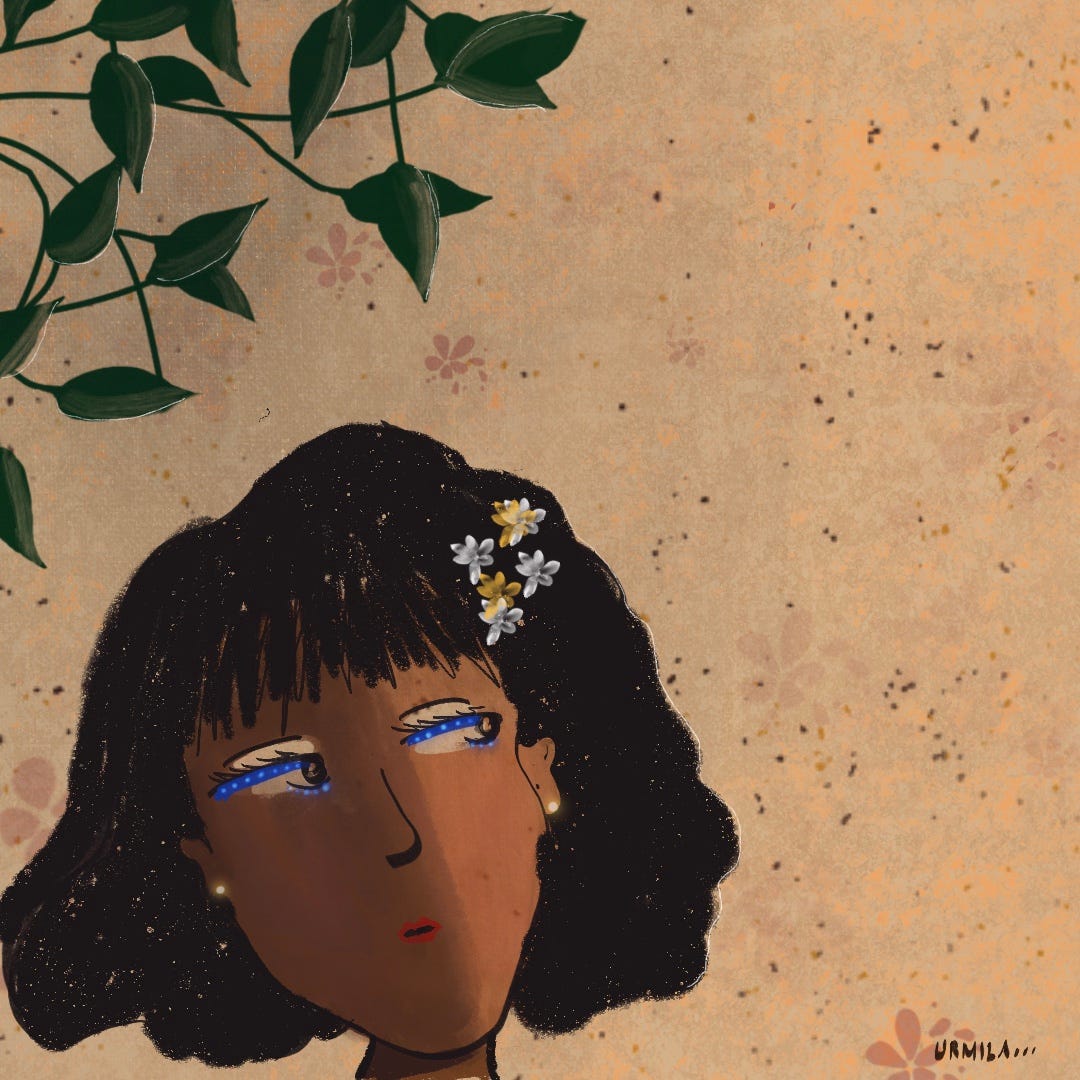Preying on Insecurities: How Creativity Gets Lost in the Shadows of Representation
From stereotypes to systemic bias, speaking up is the art of disruption.
There’s a certain kind of genius in making someone feel like they need you. It’s not just marketing; it’s manipulation cloaked as empowerment. Think about it: fairness creams promising radiant skin, slimming teas whispering “beach body ready,” get-rich-quick schemes dangling dreams of financial freedom, dating apps selling the illusion of connection. These industries don’t create desires—they prey on insecurities. And if there’s one thing I’ve learned recently, it’s that this strategy isn’t limited to products or services. Even well-intentioned creators can tap into those raw, exposed nerves of self-doubt and turn them into rallying cries.
But what recently egged me on enough to write about it when another writer sent me
Was she preying on the insecurities of every artist wrestling with imposter syndrome? Or was she simply reclaiming power from the systemic hierarchies that have long undervalued creative labor? Only she knows for sure. What struck me most, though, wasn’t whether her intent was pure—it was how brilliantly she stuck to that single message, reframing it again and again in different tones and hues.
And here’s the thing: talking about these less-than-mainstream topics? That’s its own art form.
When Shared Scars Become Bonds
The other day , I met another writer/artist for coffee. Meeting new people in your late 30s can be daunting. You brace yourself for awkward small talk, the polite dance of trying to find common ground. But within minutes, we bypassed pleasantries entirely. The conversation dove straight into racial fallacies, societal subtitles favoring light-skinned narratives over brown dialogues, and the ugly truth of systemic bias. No pretense, no fumbling for connection—we were two souls recognizing each other through scars shaped by the same knife.
It was diabolical, really. Here we were, bonding over discrimination and coping mechanisms instead of hobbies or favorite books. And yet, it made perfect sense. Isn’t it ironic? The very forces meant to divide us—racism, erasure, invisibility—are also what bind us together so fiercely.
On my way home, it struck me: I know at least two other brown women, equally brilliant and expressive, with whom I’ve had eerily similar conversations—just in different coffee shops. Each time, the same themes emerged: racism, resilience, resistance. We all agreed these discussions would make an incredible podcast. Yet, whenever I suggest putting ourselves out there publicly, the response is always the same: “I don’t want to be seen as difficult,” or worse, “What if it costs me future opportunities?”
This frustrates me to no end. Why do we spend hours articulating our experiences privately but shrink back when given the chance to amplify them? It feels like the ultimate existential oxymoron: wanting change but fearing the consequences of speaking up. If we keep tiptoeing around controversial truths, aren’t we perpetuating the very systems we claim to despise?
Packaging Pain: The Manifesto Trap
If I’m going to make it as an author—if I’m going to be the voice for these “difficult” topics—I need to learn how to package them. Because let’s face it: vulnerability alone doesn’t sell. It needs polish. Affability. A spoonful of sugar to help the medicine go down.
But here’s the catch: packaging pain shouldn’t mean diluting it. My challenge—and perhaps yours too—is to present uncomfortable truths without losing their authenticity. To craft a manifesto that resonates widely without pandering to comfort zones. To say, “Here’s the ugly reality—but here’s how we move forward.”
Because if
’s popularity taught me anything, it’s that sticking to your message matters. Repetition breeds recognition. Consistency builds trust. And sometimes, even the act of naming our insecurities aloud can feel like rebellion.So What’s Next?
Maybe it’s time we stop shrinking ourselves to fit molds designed to silence us. Maybe it’s time we embrace the discomfort of being labeled “difficult” because, honestly, isn’t staying silent harder in the long run? If nothing else, let this article serve as permission—to speak, to write, to push back against the narratives that seek to define us.
After all, the first step toward dismantling systems of oppression is acknowledging they exist. And maybe, just maybe, the second step is finding others who see the same cracks in the foundation—and deciding to rebuild together.
If you’ve ever felt the weight of a stereotype—whether it was based on your skin color, roots, gender, or any part of who you are, I would love for us to collate it. Because these fragments of lived experiences aren’t just personal; they’re collective.
Conversations around such topics are the only antidote against stereotyping of any type- positive or negative. Not everyone I meet is out there to discriminate. There are incredible people who see beyond nationality or appearance, valuing meritocracy and humanity above all else. But then there’s the other side—the ones hung up on the “marketability” of my skin tone or cultural background when it comes to opportunities.
Both sides exist, and both deserve to be part of the dialogue to represent the tapestry of the society. Let’s bring them into panels, discussions, articles—any space where voices can ripple outward and spark change.Anything else is just a smokescreen that has jaded our conditioning either to accept the status quo or live in denial or WORSE just rant about it in private!
After all, progress doesn’t come from silence. It comes from disruption. Sometimes, shaking things up is the only way to clear the dust of mental corruption.
Be the change you want to see in the world. Start by speaking up. Your voice matters more than you think!








This piece is such a breath of fresh air. I’ve been grappling with similar struggles lately. It touches on a crucial challenge for creators the tension between internal struggles and external pressures that often go unspoken. The vulnerability of confronting our true intentions, especially amid the pressure to produce for validation, is something many creatives face. As you said, it’s hard to discuss the "why" behind our work without fear of judgment, but it’s that honesty that fosters deeper connections with readers. I’ve been working to realign my work, trying to find the balance between being true to myself and my readers, hoping to show up with more compassion not just as another creator chasing market demand. Ultimately, I want to be a writer who lives, not just one trying to survive. Thank you for sharing Urmila!